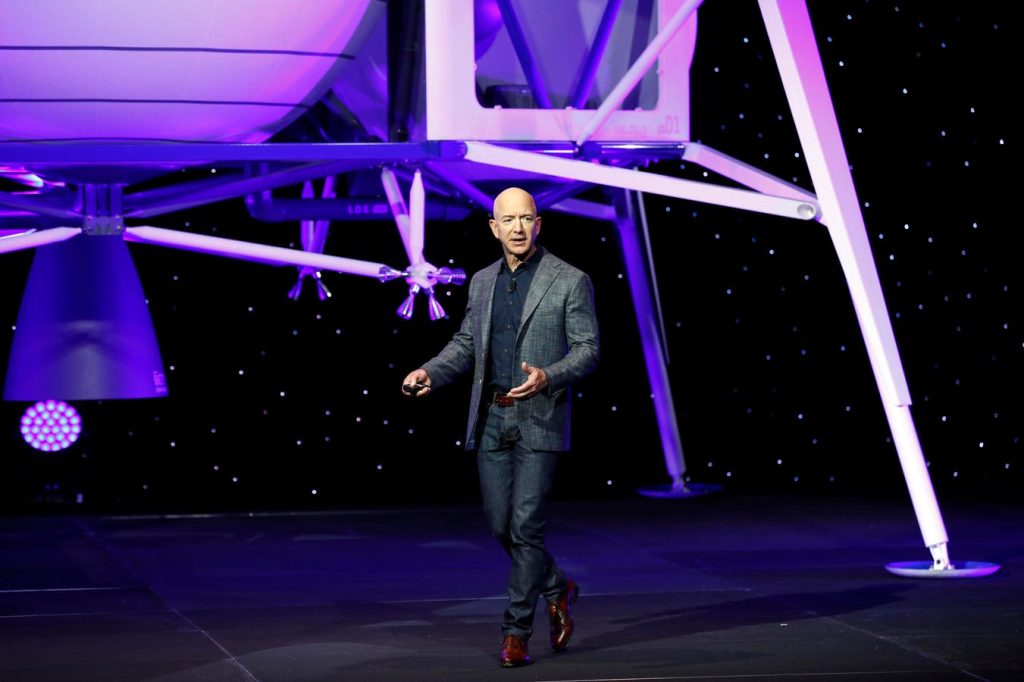Blue Origin Poised to Challenge SpaceX’s Dominance with New Glenn Rocket Launch
Nearly 25 years after its founding by Jeff Bezos, Blue Origin stands on the cusp of a significant milestone, preparing to launch its powerful New Glenn rocket from Kennedy Space Center. This inaugural launch, anticipated for early morning Sunday, marks a pivotal moment for the company and the space industry, potentially disrupting SpaceX’s near-monopoly on American satellite launches. The industry welcomes competition, recognizing the value of choice in a market currently dominated by a single player. Blue Origin’s competitive pricing strategy, offering launches at a significantly lower per-satellite cost than SpaceX, further intensifies the anticipation surrounding New Glenn’s debut.
Blue Origin has meticulously cultivated a "slow and steady" approach, contrasting sharply with SpaceX’s rapid-fire, iterative philosophy. While SpaceX has achieved an unparalleled launch cadence over the past decade, capitalizing on delays from legacy launch providers like United Launch Alliance and Arianespace, and benefiting from the removal of Russian rockets as an option due to sanctions, Blue Origin has been diligently developing its capabilities. The company’s New Glenn rocket, announced in 2016, promises to be a formidable competitor. Its larger cargo capacity and powerful engines are designed to deliver double the payload of SpaceX’s Falcon 9, offering substantial value to customers.
The pricing strategy employed by Blue Origin is a key element of its competitive edge. By charging approximately $110 million per launch, compared to SpaceX’s $70 million for a Falcon 9 launch, Blue Origin effectively offers to transport twice the payload for a 50% increase in cost. This proposition has proven attractive to companies deploying large constellations of small satellites, especially as satellite size increases. Blue Origin has secured contracts to launch satellites for major constellations, including AST Mobile’s space-based cellular network. Notably, Amazon, also owned by Bezos, is heavily reliant on Blue Origin for the deployment of its Kuiper satellite network, with planned expenditures of $2.7 billion through 2028.
Beyond commercial ventures, the U.S. government has a vested interest in fostering competition in the space launch sector. The Department of Defense has awarded contracts to Blue Origin, SpaceX, and United Launch Alliance, totaling up to $5.6 billion through 2029, ensuring redundancy and resilience in its launch capabilities. This government support underscores the strategic importance of a diversified space launch landscape. Blue Origin’s development has been fueled by substantial investments, estimated at $10 billion for the New Glenn program alone, largely funded by Bezos’ personal fortune. This long-term commitment to building infrastructure for mass rocket launches, including the development of the powerful Be-4 engine and reusable New Shepard rocket, positions Blue Origin for sustained growth and competition in the space industry.
The imminent launch of New Glenn carries significant weight for Blue Origin, representing not only a technological achievement but also a validation of its strategic approach. However, the political landscape adds a layer of complexity. The return of Donald Trump to the White House, with Elon Musk as a close advisor, raises concerns about potential shifts in government spending and regulation that could favor SpaceX. Trump’s nominee to lead NASA, Jared Isaacman, has existing ties to SpaceX, further fueling these concerns. Bezos, however, has expressed confidence that Musk will not leverage his political influence to disadvantage competitors.
Bezos envisions a future where space becomes a hub for manufacturing and mining, with Earth primarily serving as a residential and light industrial zone. He believes this "off-world economy" will eventually eclipse Amazon in scale, a vision predicated on dramatically reducing the cost of space travel. New Glenn represents a crucial step towards realizing this ambitious goal, laying the groundwork for a future where humanity’s access to space is significantly expanded. The successful launch of New Glenn would be a resounding affirmation of Blue Origin’s long-term strategy and a significant step towards reshaping the commercial space industry, injecting much-needed competition and driving innovation. The endeavor holds both promise and uncertainty, with the potential to revolutionize access to space and usher in a new era of space exploration and commerce.


